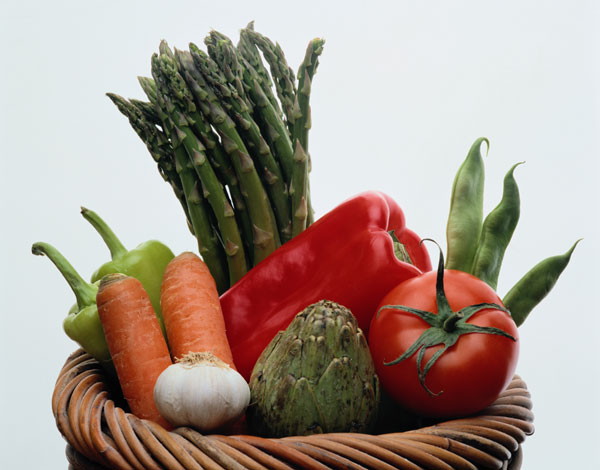Attitudes about Food Production are Eye-Opening
During the recent North American Strategy Conference on Animal Agri­culture held in Chicago, the Center for Food Integrity (CFI) assembled a diverse panel of consumers from the area. Panel members were unaware that they were speaking to an audience primarily made up of food producers and distributors.

Have you ever wondered what grocery shoppers are saying about the food you produce? During the recent North American Strategy Conference on Animal Agriculture held in Chicago, the Center for Food Integrity (CFI) assembled a diverse panel of consumers from the area. Panel members were unaware that they were speaking to an audience primarily made up of food producers and distributors.
Charlie Arnot, CFI chief executive officer, served as moderator of the six-member panel, guiding them through a series of questions and seeking comments about agriculture and food production. Most of the panel members had absolutely no connection to, or experience with, livestock production or farmers.
Panelists were asked to discuss how their values impact their perceptions of food production practices. Some of their comments were eye-opening.
Straight Talk from Consumers
“I like the idea that farming has been around for a long time in the United States. I learned in school how important it is to have food in front of me,” said Philip, a warehouse manager who enjoys cooking with his 10-year old daughter. “I want to know more about farming.”
April, an affluent 36-year-old, stay-at-home wife and mother from suburban Chicago, had recently taken her children on a day trip to the Fair Oaks Dairy demonstration farm south of Chicago. She said the experience was informative and helped give her a positive perception about agriculture.
“I am realistic. I don’t need a ‘Hallmark notion’ of things,” she explained. “If I’m going to eat the animal, I don’t expect someone to take it for a walk every day. This animal exists to provide food for our country and to help feed our children.”
Charles, a 28-year-old clinical researcher with a large garden and a penchant for eating out, also expressed a realistic view of agriculture, but did not like the idea of being manipulated by messaging.
“Intensive agricultural practices seem necessary to keep prices low,” he said. “What I don’t like is when it seems like someone is trying to sell me on an idea that all farms are family owned.”
Some panel members felt they knew something about farming — and what they “knew” wasn’t necessarily good.
“Some farmers are being paid not to grow things,” said Barbara, a semi-retired grandmother, restaurant reviewer and cookbook author. “I get the feeling the people running the huge farms are doing what they have to do to make a living, but not doing all they could do in the best interest of the animals or the people who are eating the food they produce.
“Our food is 40% less nutritious than it used to be,” she continued. “What the farmers are feeding the animals has a direct impact on the nutrition for the people who are eating the animals.”
Maria, a 25-year-old mother and organic food enthusiast, agreed with Barbara. “Farmers are working for corporations and don’t get to do what they might like to do to produce healthy food. Intensive practices are leaving the land desert-like and land is being wasted,” she said.
Don, an unemployed 28-year-old who lives in his parents’ basement, had been greatly influenced by watching the movie, “Food Inc.,” which portrays agriculture in a negative light. “I watched ‘Food’, Inc. and the way animals are raised sounds scary and horrifying to me,” he said.
Suspicions Linger
Across the board, it seemed the panelists were wary of the information they receive about how their food is produced.
“It’s exhausting how suspicious I am of everything,” Maria admitted. “I read labels and then I find out the chickens that are said to be ‘free range’ actually aren’t allowed outside at all. I am suspicious about what other bad things are going on. When things are disclosed to me, I’m happy making my own decisions. I’m just so tired of trying to figure out all of the ways people are trying to get me to eat their food.”
Philip agreed. “There are just so many conflicting messages about our food.”
The bottom line seemed to be that the panelists wanted to know the “real story” about where their food comes from.
The panel members noted that they share recipes and their thoughts about food with others on a regular basis, through social media, blogs, word of mouth and other outlets.
“I was really impressed that CFI was able to locate people for this panel who are clearly sharing their opinions about food with others,” noted Minnesota pork producer Brad Hennen. Locating and communicating with these people is every bit as important as feeding a ‘message’ to the media. News spreads like wildfire and these are the people who spread it.”
About the Author(s)
You May Also Like



